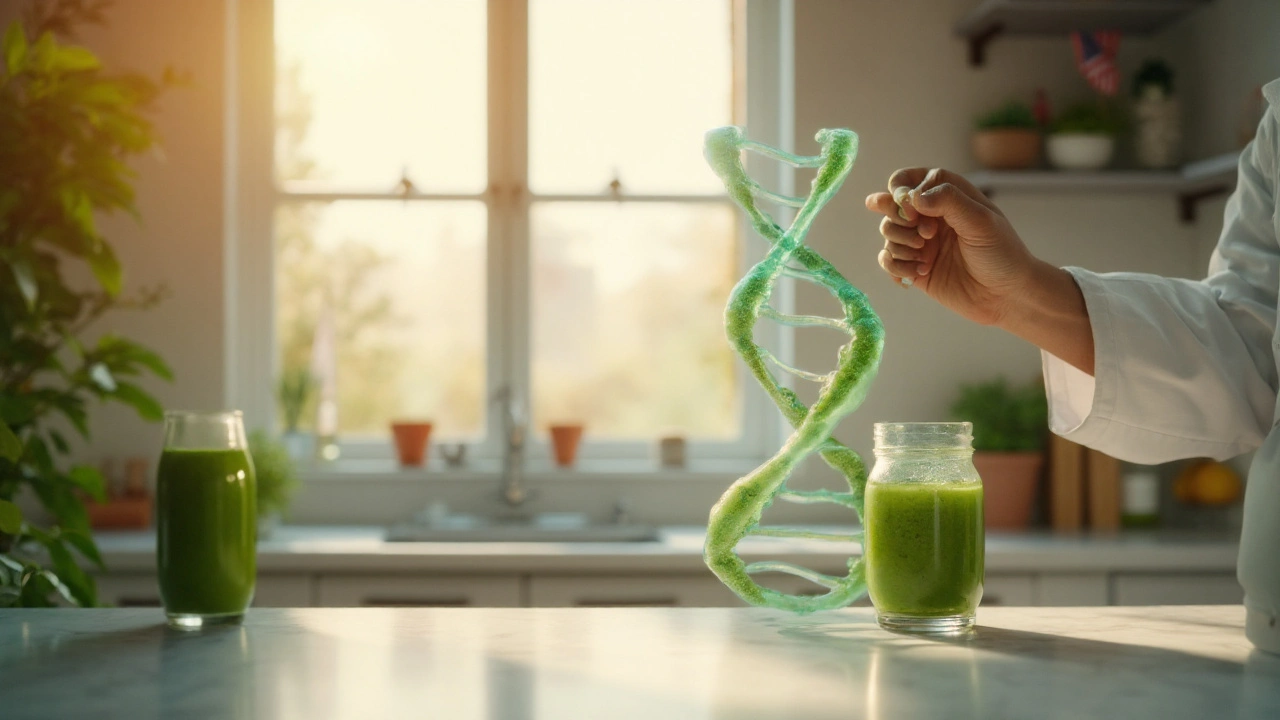DNA Dietary Supplement: What It Is and Why It Matters
Ever wondered why you see "DNA supplement" on health store shelves? Manufacturers say these pills contain tiny pieces of DNA or DNA‑building blocks that can support cell repair, boost energy, and even improve skin tone. The idea sounds futuristic, but the science behind it is still growing. Let’s break down what a DNA supplement actually contains, what it claims to do, and whether it’s worth adding to your routine.
How DNA Supplements Claim to Help Your Body
Most DNA dietary supplements contain nucleotides, amino acids, or herbal extracts that are said to supply the body with raw material for DNA synthesis. In theory, giving cells extra building blocks could speed up repair after exercise, support immune function, or slow down age‑related wear and tear. Some formulas also mix antioxidants like vitamin C or green tea extract, arguing that protecting DNA from oxidative damage is just as important as building it.
Real‑world results depend on a few factors. Your gut has to absorb the ingredients, and your cells must actually use them for DNA repair. Studies on athletes who took nucleotide‑rich drinks showed modest improvements in recovery time, but the effects were small and varied between individuals. For everyday people, the benefit may feel more like a subtle boost in energy rather than a dramatic transformation.
Choosing a Safe and Effective DNA Supplement
When you shop for a DNA dietary supplement, start by checking the label. Look for clear amounts of nucleotides (like 100 mg of RNA or DNA fragments) and avoid products that hide behind vague terms like “DNA complex” without specifying ingredients. Trusted brands often list third‑party testing or certifications – that’s a good sign they’ve checked for contaminants.
Price can be a red flag. Because producing pure DNA fragments is pricey, a supplement that costs under $10 for a month’s supply may be cutting corners. Expect a reasonable price range of $30‑$70 for a quality product that provides the right dosage.
Don’t forget potential interactions. If you’re already taking antioxidants, additional high‑dose vitamin C could cause stomach upset. People with autoimmune conditions should talk to a doctor before adding any supplement that claims to boost cell activity.
Finally, read reviews that talk about specific outcomes – like faster post‑workout recovery or clearer skin – rather than generic praise. Real user experiences can give you clues about whether the product lives up to its promises.
In short, DNA dietary supplements aren’t magic pills, but they might offer a modest edge for athletes, busy professionals, or anyone keen on supporting cellular health. Pick a reputable brand, check the ingredient list, and keep your expectations realistic. If you combine the supplement with a balanced diet, regular exercise, and good sleep, you’ll give your DNA the best chance to stay in good shape.
RNA & DNA Supplements: Boost Your Genes for Better Health
- Benjamin Aghaki-Allen
- Health
- 11 comment
Discover how RNA and DNA dietary supplements work at the genetic level, the science behind them, real benefits, and a practical guide to choosing safe, effective products.
VIEW MORECategories
Popular posts
-
Biologics in Severe Asthma: How Anti-IgE and Anti-IL-5 Therapies Work
Benjamin Aghaki-Allen -
Pharmacist Responsibility for Reporting Generic Drug Problems
Benjamin Aghaki-Allen -
Chronic Hepatitis C: How Modern Antivirals Cure the Virus and Protect the Liver
Benjamin Aghaki-Allen -
Mirtazapine as an Adjunct for Schizophrenia: Is It Worth Trying?
Benjamin Aghaki-Allen -
Food Effects on Medication Side Effects: Basic Principles for Patients
Benjamin Aghaki-Allen
Popular tags
- side effects
- medication safety
- online pharmacy
- generic drugs
- medication errors
- drug side effects
- dietary supplement
- gut health
- blood pressure medication
- alternatives
- medication adherence
- Hatch-Waxman Act
- drug interactions
- weight loss
- dosage
- weight management
- quality of life
- cheap generic Zoloft
- affordable sertraline
- Claritin
